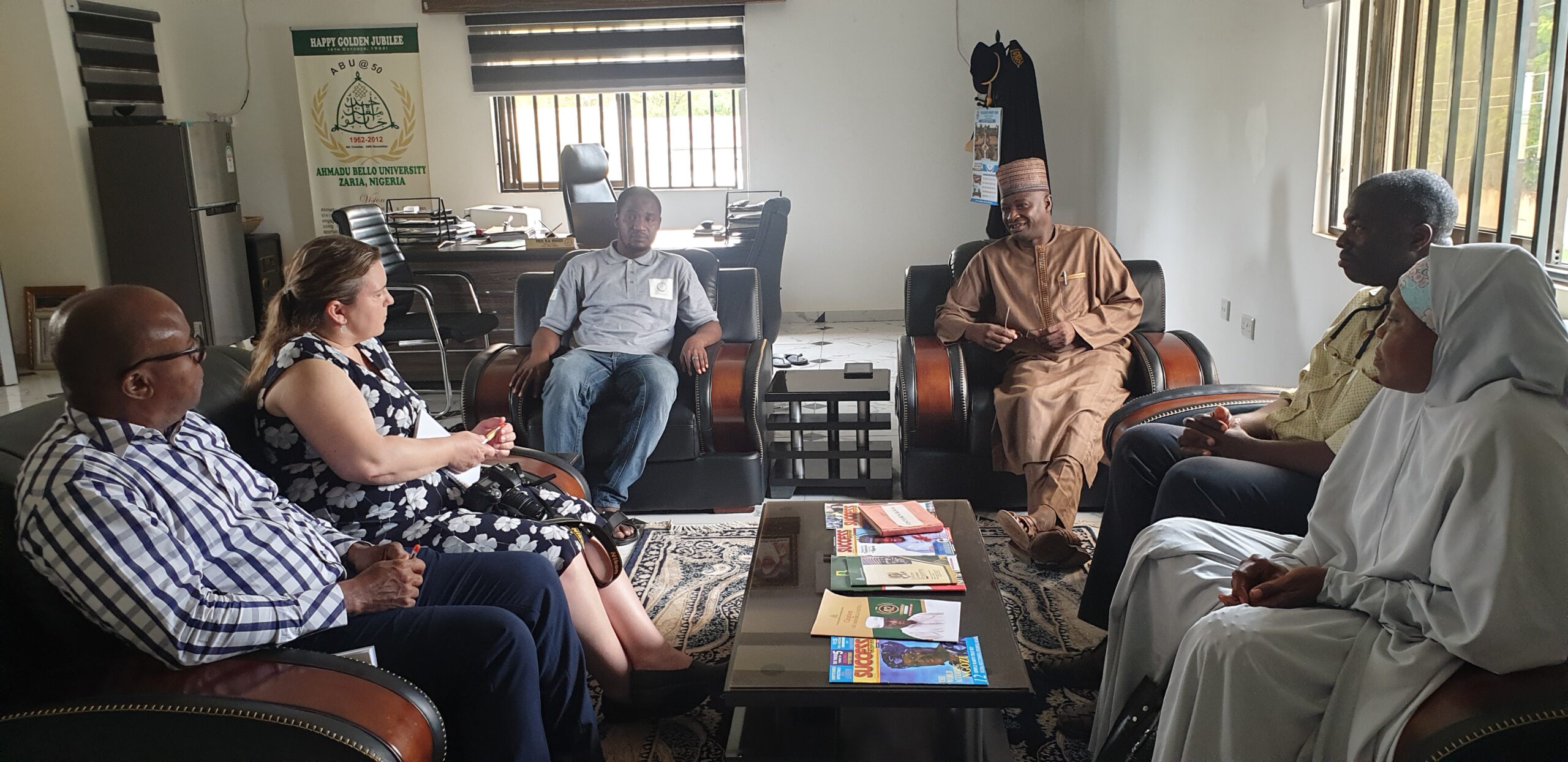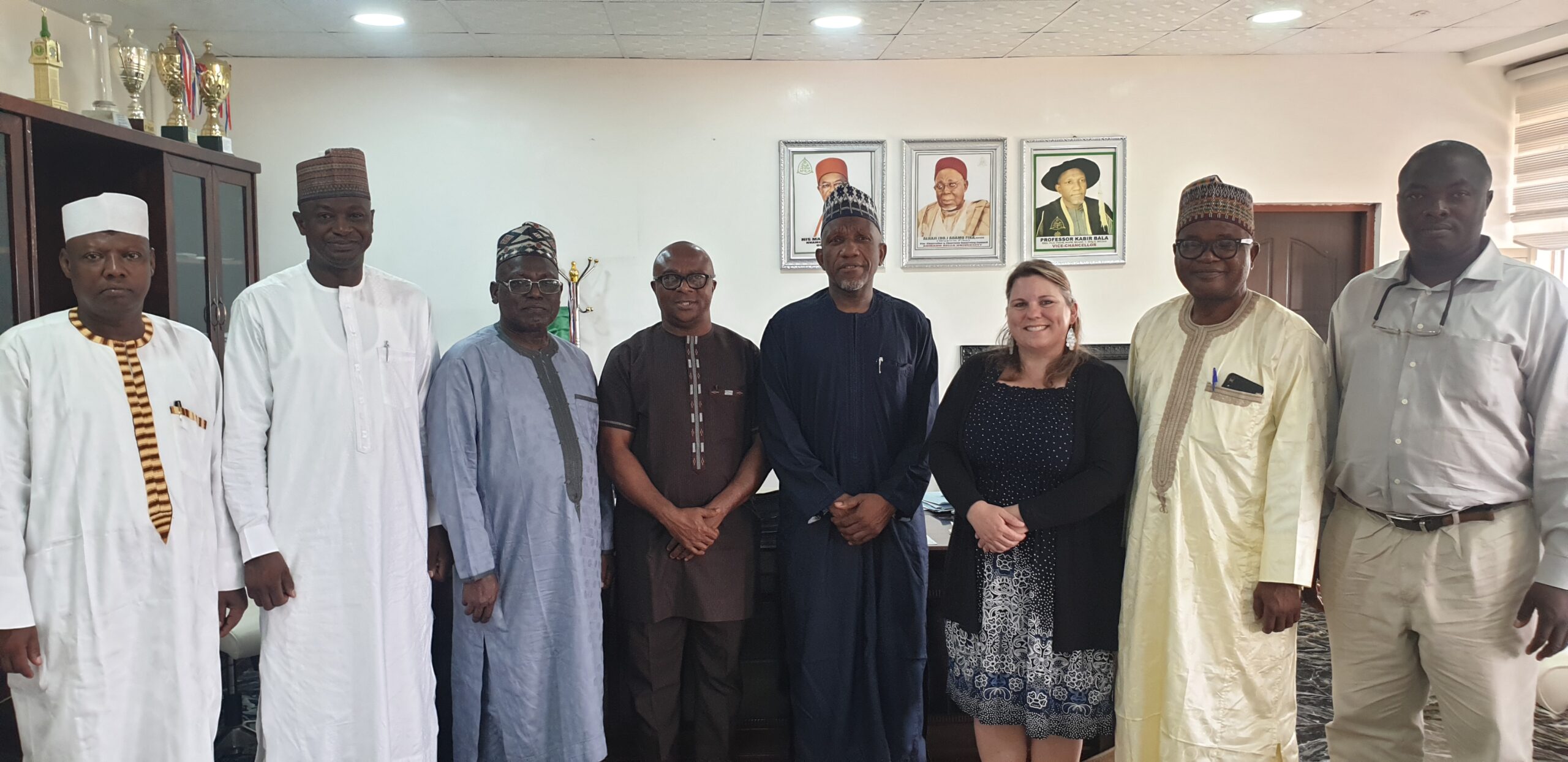
Volunteer Post
Jolene Warnke-Roszel: A Legacy of Dedication and Expertise in Pesticide Safety Training [NIG440]
Assignment NIG440
Eric M. Washington & Sherri Kabaou
In an interconnected world, ensuring the safety of our food becomes paramount. One of the most concerning issues is the presence of pesticide residues in our daily consumption. This journey began with a keen observation by a Winrock International Farmer-to-Farmer (F2F) volunteer in 2017 and is evolving into a robust program designed to safeguard our health and enhance agricultural standards.

While volunteering in Nigeria in 2017, Jolene Warnke, noted the absence of an organized system for testing pesticide residues on food products. The lack of equipment, regulations, and training led to unfortunate pesticide poisonings. Jolene’s recommendation? Develop a comprehensive pesticide residue testing program and extend training opportunities. In 2018, Jolene Warnke-Roszel already showcased her commitment and expertise in the realm of pesticide safety. Returning as a seasoned volunteer for the F2F program, her mission was clear under the banner of our 383rd assignment in Nigeria, “Developing Training Syllabi for Pesticide Safety and Certification Course.” Upon her arrival in Nigeria, Jolene brought a distinct advantage to the table. She held comprehensive responsibilities as a Training & Development Specialist with the Montana Department of Agriculture, Helena. She was instrumental in developing pesticide safety training curricula tailored to commercial and government applicators.
Additionally, Jolene was pivotal in coordinating and conducting continuing education training spanning the state. Leveraging her vast experience, Jolene collaborated diligently with the Department of Pest Management faculty at the Samaru College of Agriculture in Zaria. The combined efforts of Jolene and the Samaru College of Agriculture in Zaria aimed at one significant outcome: formulating a robust training syllabus to pave the way for a specialized one-year Certificate Course. This course would focus on the safe application and use of pesticides, emphasizing best practices and ensuring safety standards were met. Her commitment and approach were a testament to the effectiveness of harnessing on-ground experience to craft relevant, localized training programs. With Jolene’s dedicated efforts, the foundation for a structured and effective pesticide safety training regimen in Nigeria was firmly established.
Challenges and Overcoming Them: Adapting to the Pandemic
In 2020, Jolene continued her efforts by conducting a remote assignment. However, the spirit of innovation prevailed. The assignment was structured into a hybrid model:
- A remote approach: Jolene, drawing from her past experiences with the host, created a post-associate degree-level agricultural education and training (AET) course outline on pesticide residue testing.
- An in-person approach involved hands-on guidance in developing a two-year Higher National Diploma certification course curriculum later, once travel restrictions was lifted.
Jolene and her team, using technology, bridged the gap caused by the pandemic. Virtual meetings ensured the mission continued, adapting to the challenges rather than surrendering.
 Deep Dive into the Mission: Groundwork and Implementation
Deep Dive into the Mission: Groundwork and Implementation
Fast forward to 2023, an opportunity became available for Jolene to travel to Nigeria. Once on-ground, Jolene assessed the infrastructure to determine the feasibility of introducing the program. She toured various colleges and universities, including the Center for Dryland Agriculture and the Multi-Lab at Ahmadu Bello University. Multiple sessions, workshops, and meetings were conducted, lasting hours, emphasizing the dedication of all involved. The team deliberated on the curriculum, focusing on real-world applicability, relevance, and modernity. They reimagined outdated courses, blending technology and conventional wisdom to foster holistic education.
The Power of Personal Stories
Several participants and educators spoke highly of the program and the benefits it derived. Here are some reflections:
– “This exercise expanded my horizons… I learned the importance of team efforts and gained insights into pesticide residues and their effects on the environment,” voiced Shukrah Abdulrahman, a Technical Officer.
– Usman Suleiman from the Science Lab Technology Program highlighted, “This workshop has enriched my understanding of chemicals used on crops and the art of curriculum building.”
Such testimonials highlight the tangible and intangible outcomes of the program, encompassing knowledge enhancement, skill-building, and fostering a collaborative spirit.
Looking Ahead: The Bright Future of Agriculture
From identifying the issue to the ongoing implementation of solutions, this journey symbolizes hope. It underscores the belief that challenges, no matter how daunting, can be overcome through collaboration, adaptation, and a relentless spirit. As we look ahead, the vision is clear: a world where our food is safer, our farmers are empowered, and knowledge drives progress.
